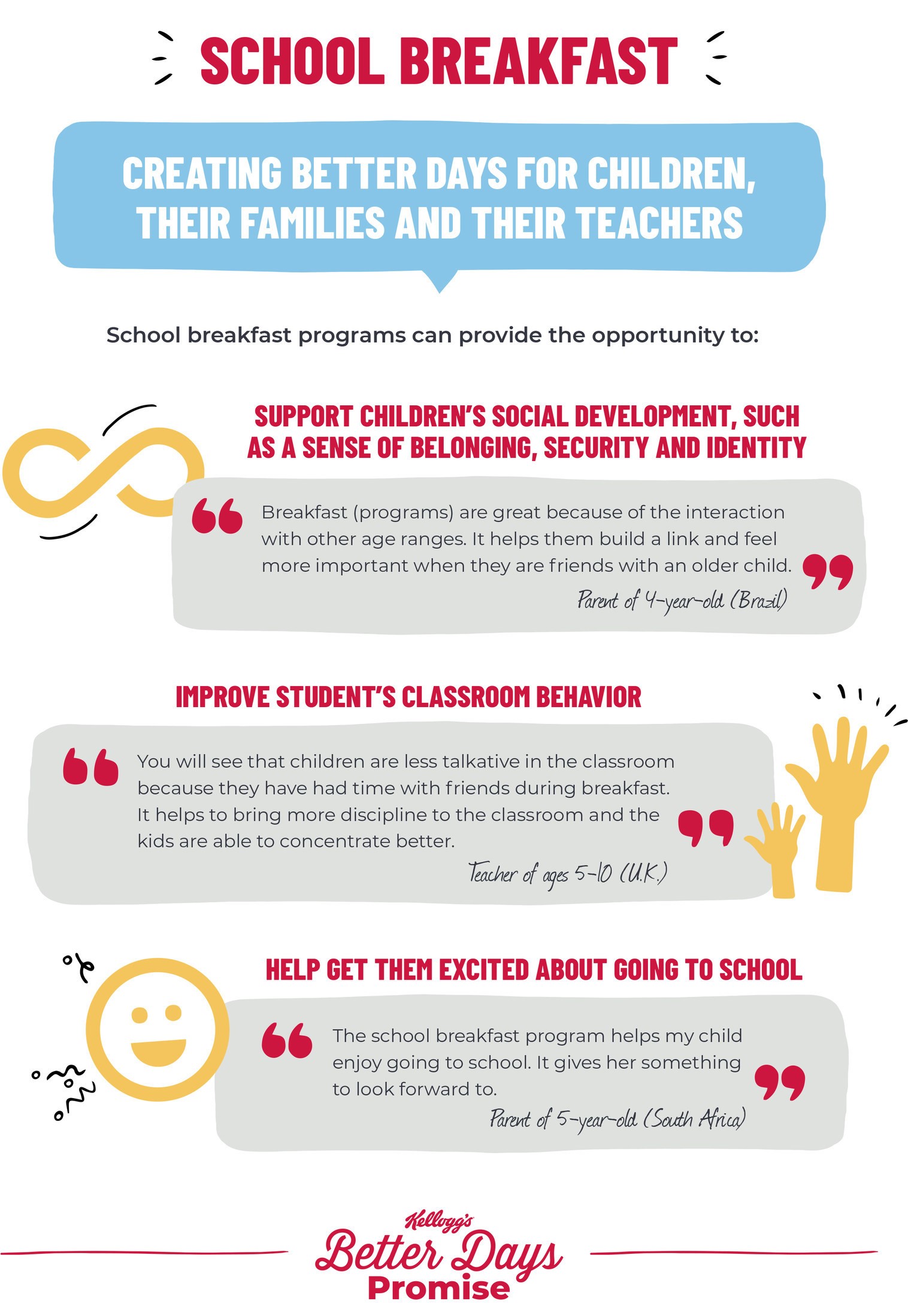
- About Us
- Wellbeing
- Hunger
- Sustainability
- ED&I
- People
- Reporting
Child Feeding Programs
Furthering breakfast programs
For children, hunger is especially devastating. According to The Global FoodBanking Network, “[m]oderate to severe food insecurity can cause debilitating or sometimes irreversible damage to the child’s physical and cognitive development.”
Kellogg is dedicated to feeding people in need; breakfast programs are one of the key ways we do so. For example, we have a long-standing commitment to breakfast clubs. Overall, Kellogg supported breakfast clubs in 27 countries in 2022. Since 2015, we’ve reached more than 5 million children through feeding programs, including breakfast clubs. In many places in the world, these before-school programs provide students with a healthy breakfast, time to play with friends and, often, extra academic support so they arrive at school ready to learn.
In the U.S., where breakfast is often provided through subsidized school meal programs, Kellogg works closely with a variety of partners to increase students’ access to these programs as well. For example, we are proud of our long-standing partnership with No Kid Hungry, which enables them to help school districts across the U.S. maximize, revamp, and expand school meal programs, as well as guide them both on the ground and through national resources. Since 2015, with Kellogg’s support, No Kid Hungry has:
- Provided more than 421 grants across 32 states
- Served more than 179 million meals
- Reached more than 1.4 million kids
In Japan, Kellogg Japan created the Kellogg’s® Every Day Breakfast Project, working with national “children’s café” networks—volunteer-led community centers that offer kids free or low-cost meals and place to socialize—and teacher networks to ensure students start their days fed and fulfilled. Since its launch in April 2022, the project has expanded to 318 schools and 21 children’s cafés nationwide. By 2030, it will be available at 47 children’s cafés.
Impact beyond nourishment
School feeding programs around the world are gaining momentum and support as the multitude of benefits becomes apparent. In 2022, building upon previous research, Kellogg Company Fund commissioned research to understand school meals programs and the social benefits they can provide. School breakfast programs are an established intervention in schools and communities around the world, and while their primary aim is to provide healthy food where food insecurity may be an issue, the research found that many have evolved to provide the opportunity to complete homework, play and socialize.
This can lead to benefits, such as:
- Supporting children's social development;
- Improving students' classroom behavior; and
- Making children who attend breakfast programs excited about going to school.


